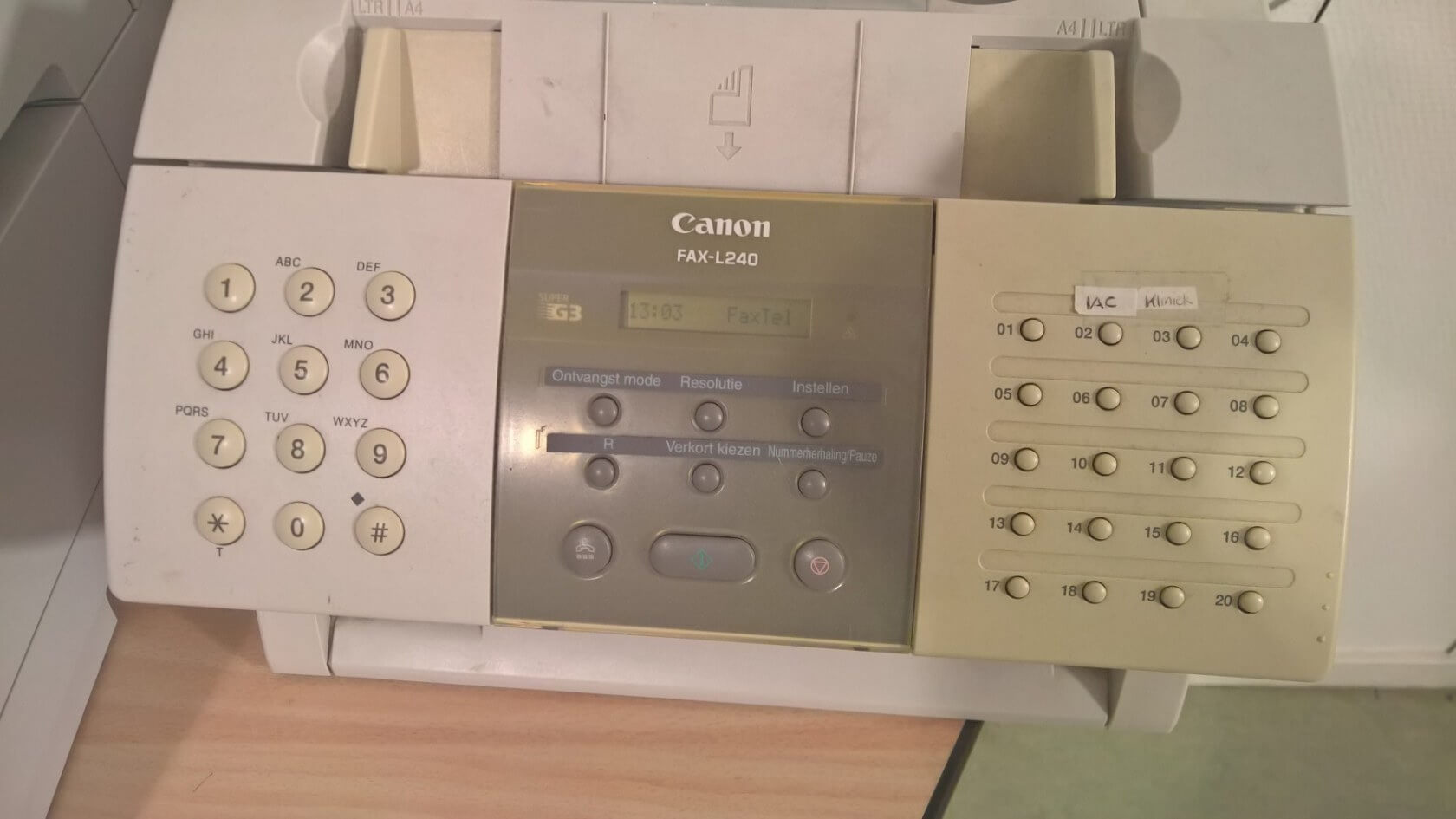WTF?! There are plenty of technologies that fall into the 'archaic' category, such as floppy discs, VHS tapes, and dial-up modems. But one of these outdated pieces of equipment is still being used in their thousands by the UK’s National Health Service (NHS): fax machines.

The 1980s and 1990s saw a fax machine in most offices around the world. They allow the sending of a scanned image from one number to another using audio frequency tones via the telephone system. In the 21st century, their use started to decline drastically, mostly due to the rise of emails, the internet, smartphones, and other tech. But the NHS is not only “stubbornly attached” to the machines, it is also the world’s biggest buyer of faxes.
A report by the Royal College of Surgeons (RCS) found there are at least 9000 fax machine in use across all NHS services, with one trust alone using 603 of them. The professional body has called the medical service’s reliance on the obsolete technology “farcical.”
The Telegraph reports that frustration with faxing has resulted in many doctors sending sensitive information using unofficial means, including messaging services such as WhatsApp. “The NHS cannot continue to rely on a technology most other organizations scrapped in the early 2000s,” said Richard Kerr, chair of the Royal College’s commission into the future of surgery.
The revelations follow a report by DeepMind Health last year that named the NHS as the largest purchaser of fax machines in the world.
Back in 2016, it was reported that many US agencies also still use ancient technology, including IBM Series-1 computers complete with 8-inch floppy discs for nuclear weapon systems. A lawsuit later claimed the FBI deliberately employs these decades-old computers to hinder public requests made under the US Freedom of Information Act (Foia).
https://www.techspot.com/news/75472-uk-national-health-service-relies-fax-machines.html